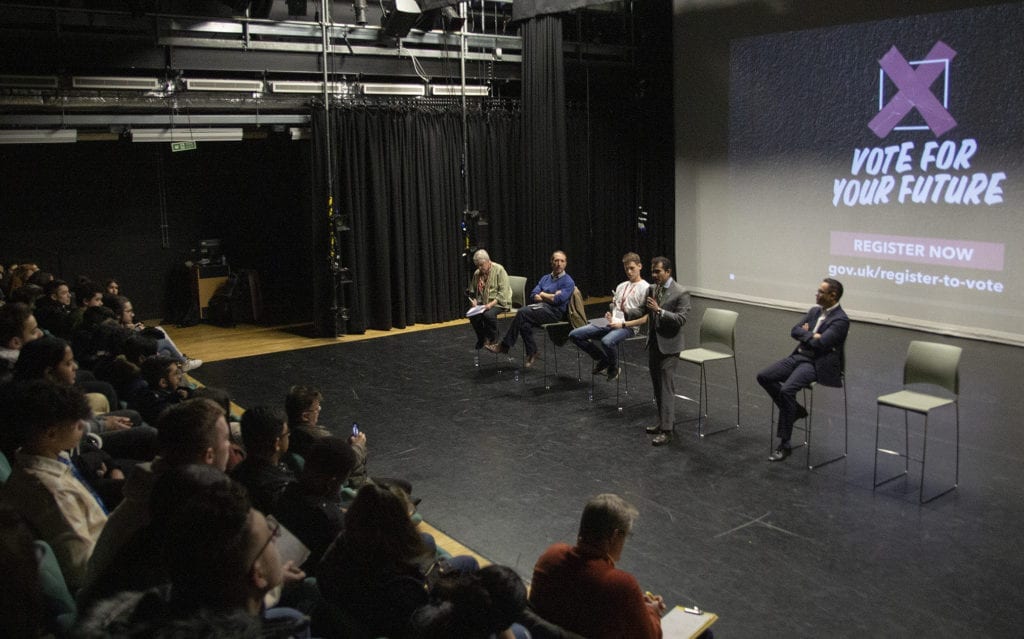General Election 2019: WestKing Students Grill Candidates on the BBC

On Tuesday 19 November, Westminster Kingsway College held a General Election hustings event, where candidates from the Labour, Liberal Democrat, Green and Brexit parties came to the college’s Kings Cross Centre to pitch on behalf of the parties for the Youth Vote at the upcoming general election.
Around 60 students were in the college’s theatre space to hear the pitches from the four candidates:
- Councillor Abdul Hai (Labour Councillor for King’s Cross Ward, and Camden Council Cabinet Member for Young People and Cohesion)
- Matthew Kirk (Liberal Democrat Parliamentary Candidate for Holborn and St Pancras)
- Kirsten de Keyser (Green Party Parliamentary Candidate for Holborn and St Pancras)
- Hector Birchwood (Brexit Party Parliamentary Candidate for Holborn and St Pancras)

After the pitches, the students posed a variety of challenging questions to the candidates. Top priorities for the young people were issues close to their hearts, like knife crime, stop-and-search, tuition fees, the funding of youth services, young people’s mental health, Brexit and the future of the NHS. Rather like last night’s televised debate on ITV between Boris Johnson and Jeremy Corbyn, the debate got quite heated at times, as the four candidates alternately tried to respond to the questions and attack each other’s record on the issues raised.
Afterwards, Rosa Kurowska, A Level Politics lecturer at Westminster Kingsway College, who had many of her students at the hustings, said: “The students really appreciated the opportunity to meet several party candidates and question them about issues that matter to them. Our students are highly engaged in politics both in their studies and outside of college, but they often find that mainstream politicians often don’t address the issues that matter to them.
“Therefore it was great to hear so many insightful and challenging questions from students for the candidates, as well as from those who stayed behind to debate further and speak with the candidates and the BBC about their views. Hopefully, this event will encourage more young people to register to vote, because, as reported yesterday by the Electoral Commission, a worrying one in three teenagers of voting age aren’t actually registered to vote in the general election at all.”
The college organised the event in partnership with Vote for Your Future, a non-partisan body that aims to get as many young people to register to vote as possible. A futher hustings will be held next week at our Victoria Centre, giving more students the chance to grill local election candidates.
In addition, a crew from BBC London News came to the hustings too. After filming at the event, we took them and a group of our students to a classroom to interview them in more depth about their views on the election and voting. For these students, the lack of diversity in Parliament and representation by people from their ethnic groups was a major issue. “To be honest, we’re just represented by white people. How can they understand what we care about and what we feel matters?” was one reaction. Expanding the voting age to 16 and 17-year-olds is also important to the students – as long as young people – and voters of all ages – can access the information they need to make a truly informed decision.
Anyone aged 18 or over can vote in elections, but you will not be able to vote in the 2019 General Election on 12 December unless you have registered to vote. There is still time to register – the deadline is 11:59pm on Tuesday 26 November – register to vote online now.

King’s Cross
London
WC1X 8RA
United Kingdom Contact Us


